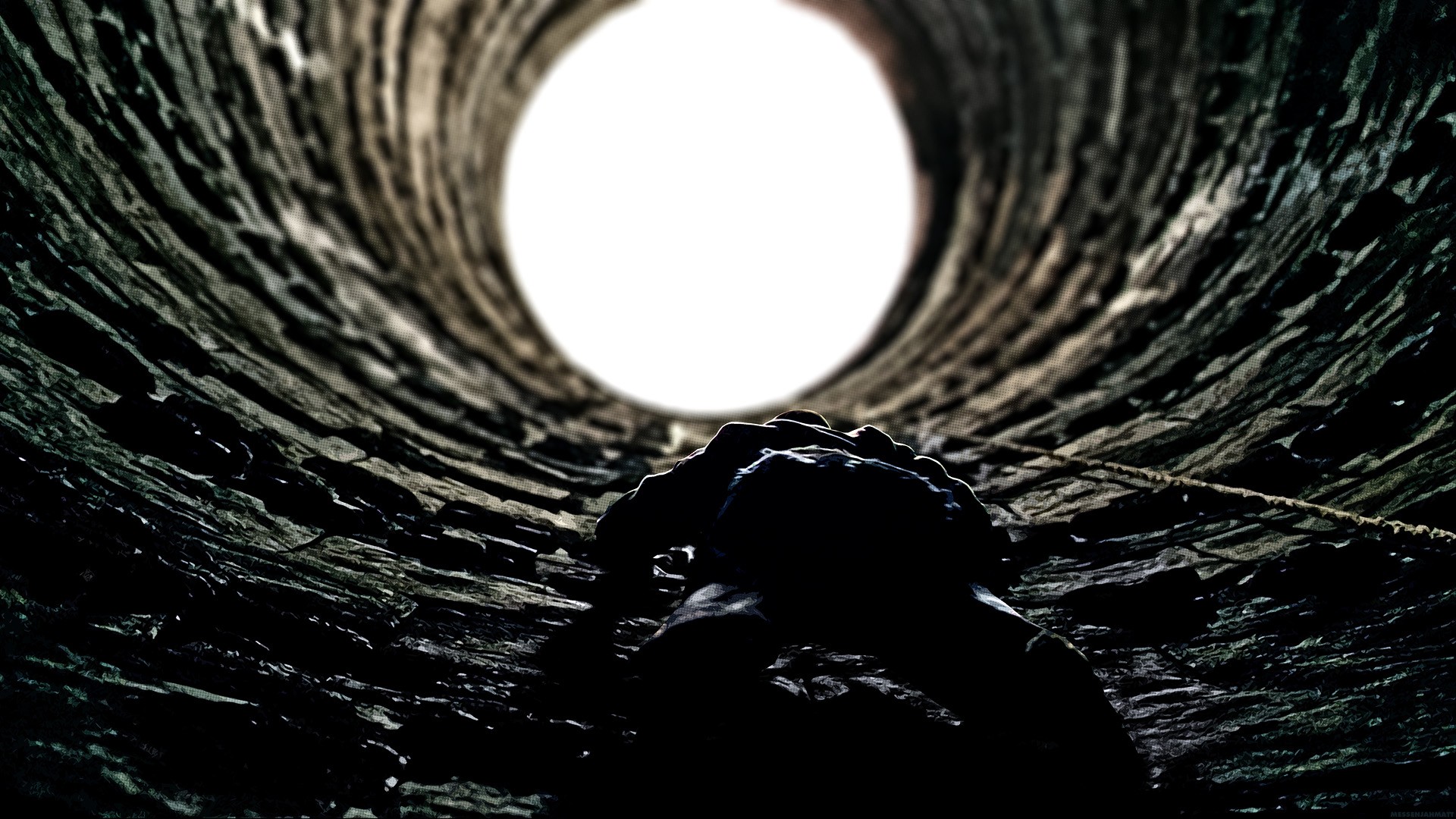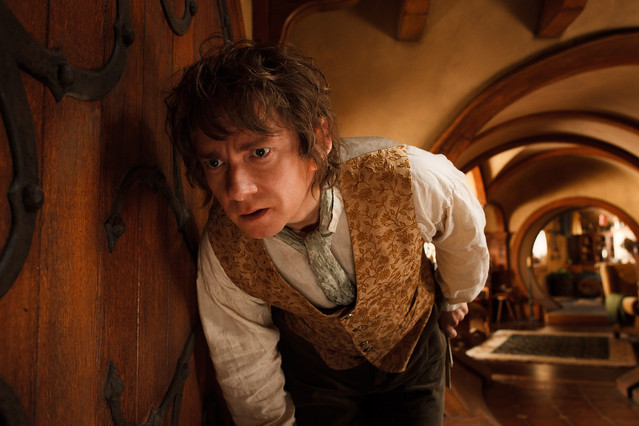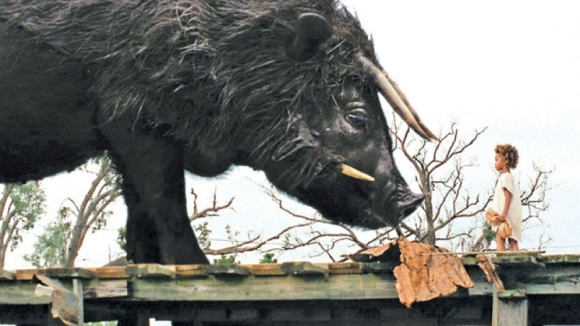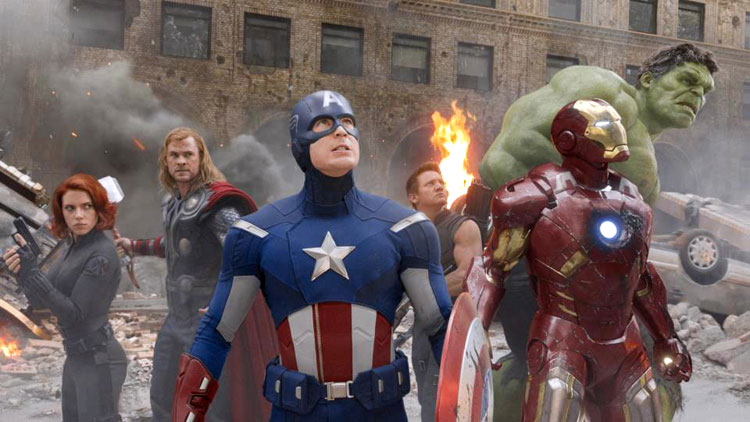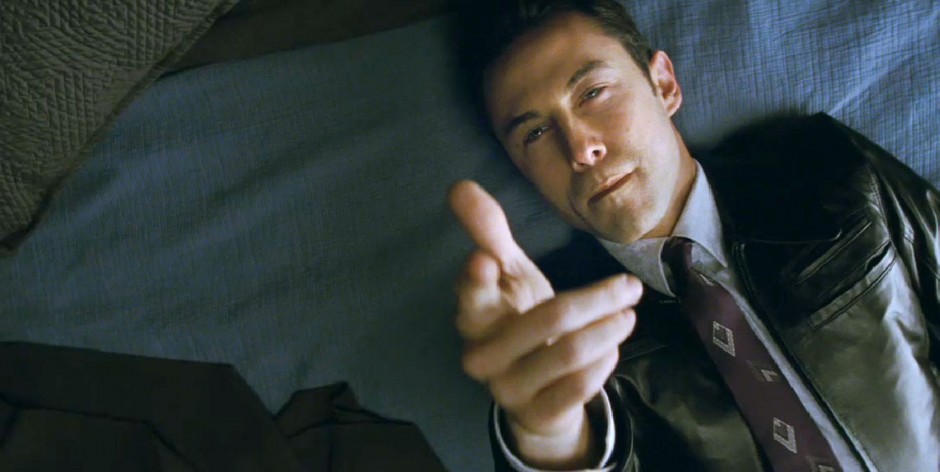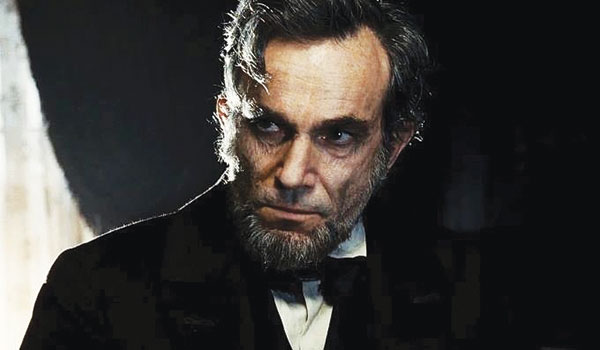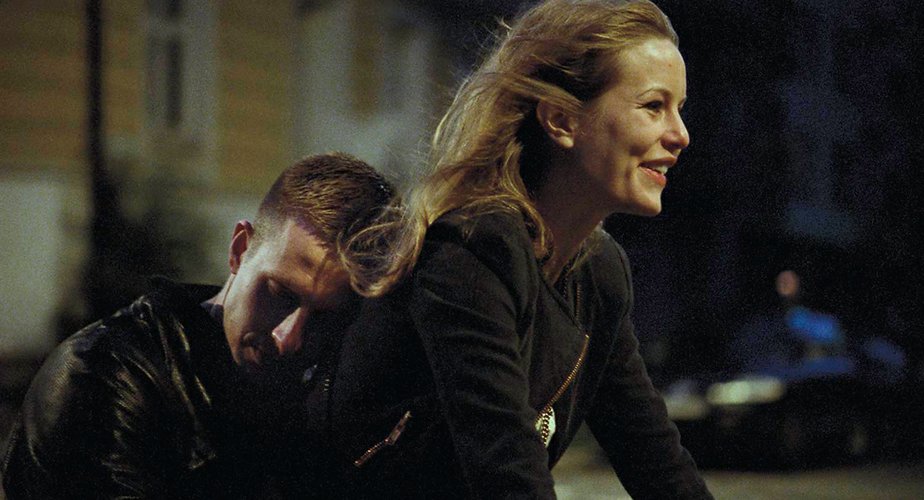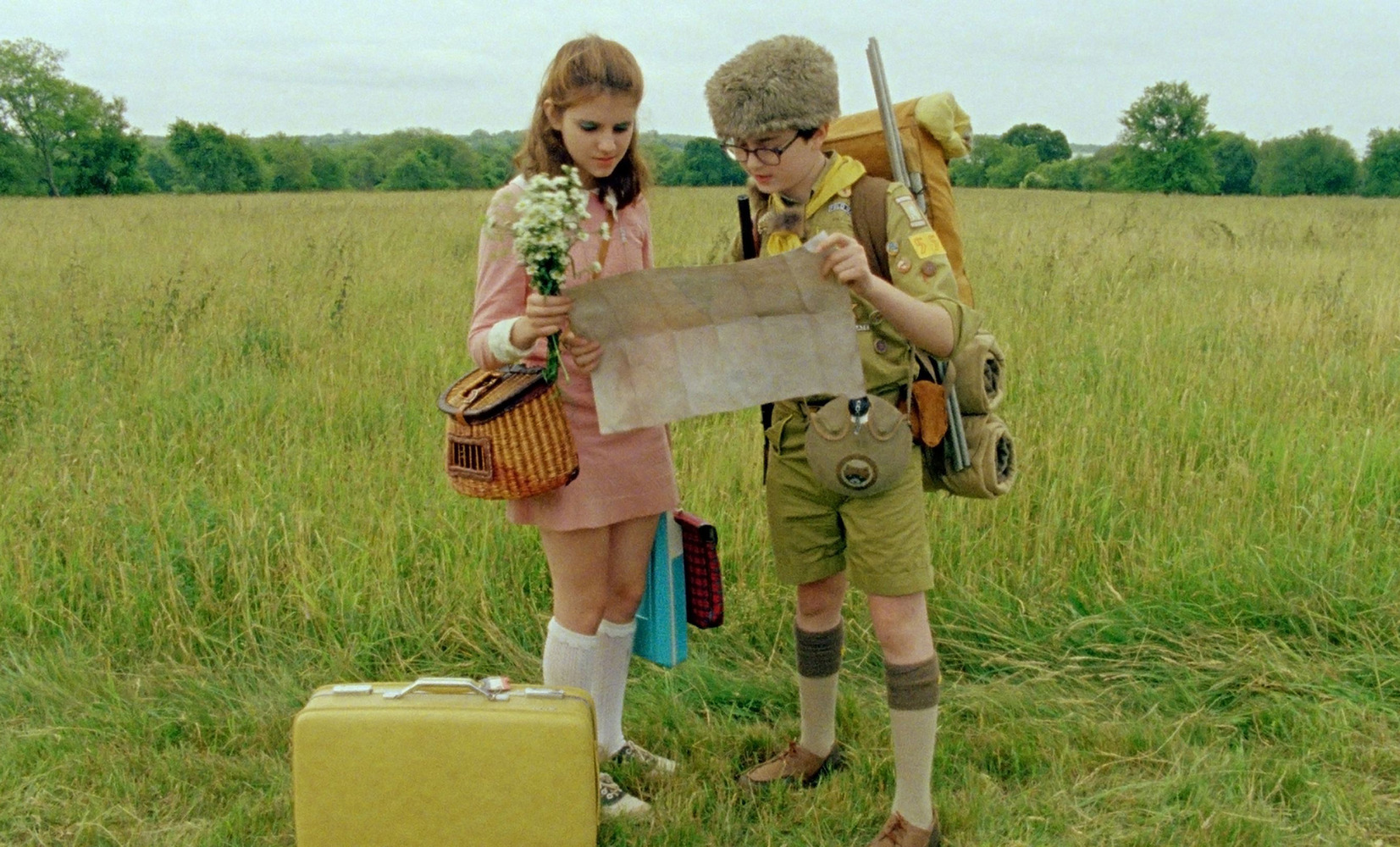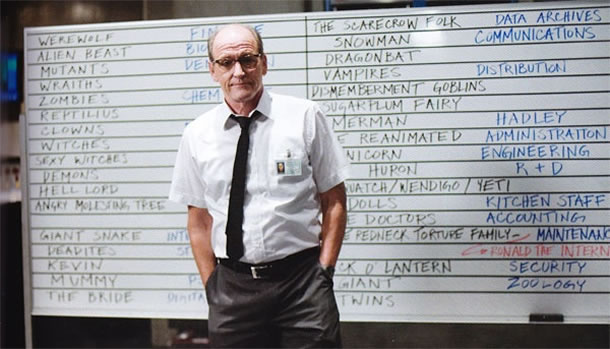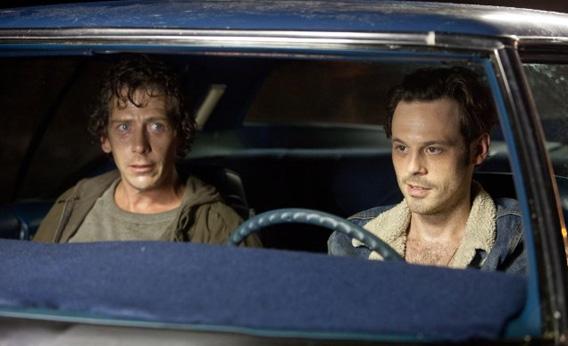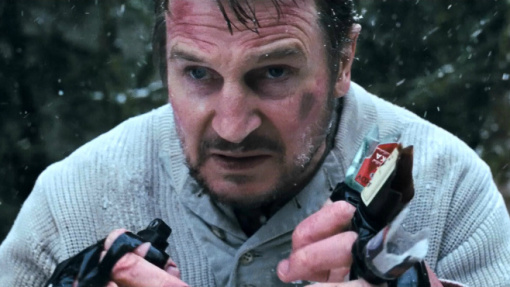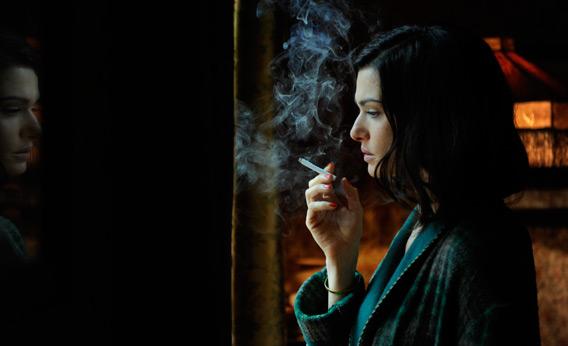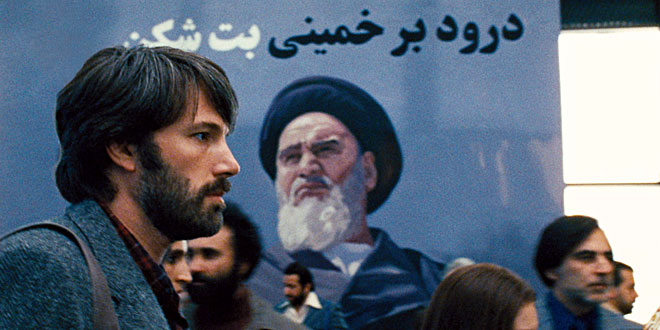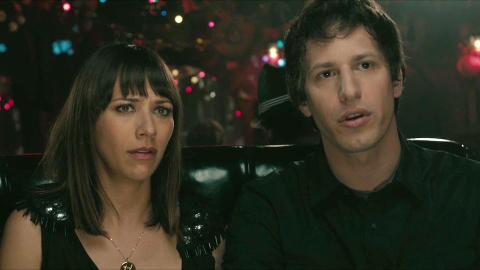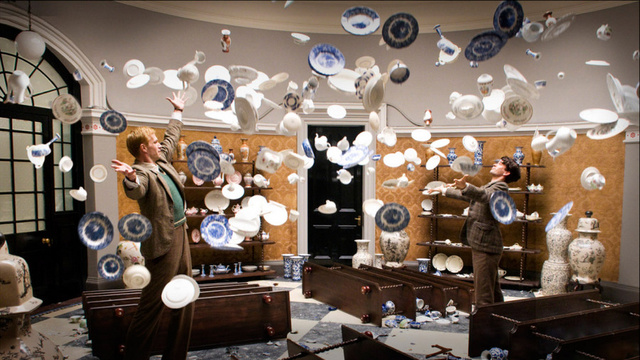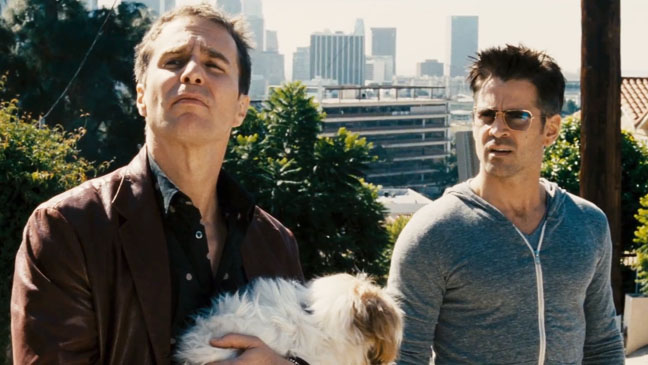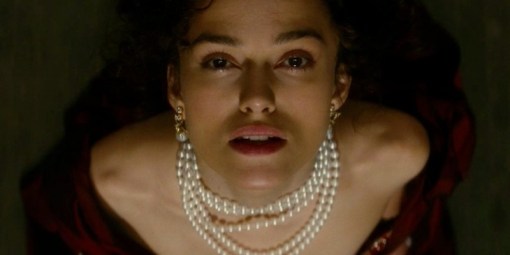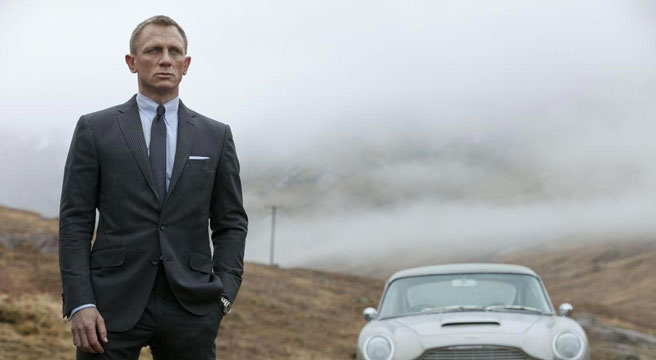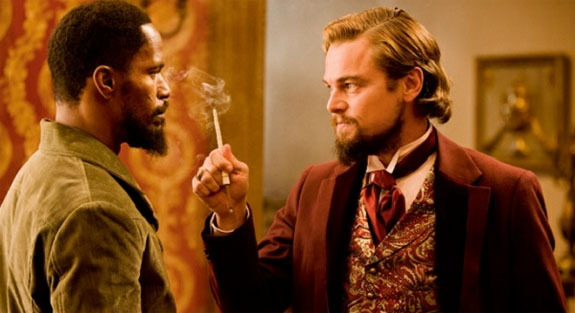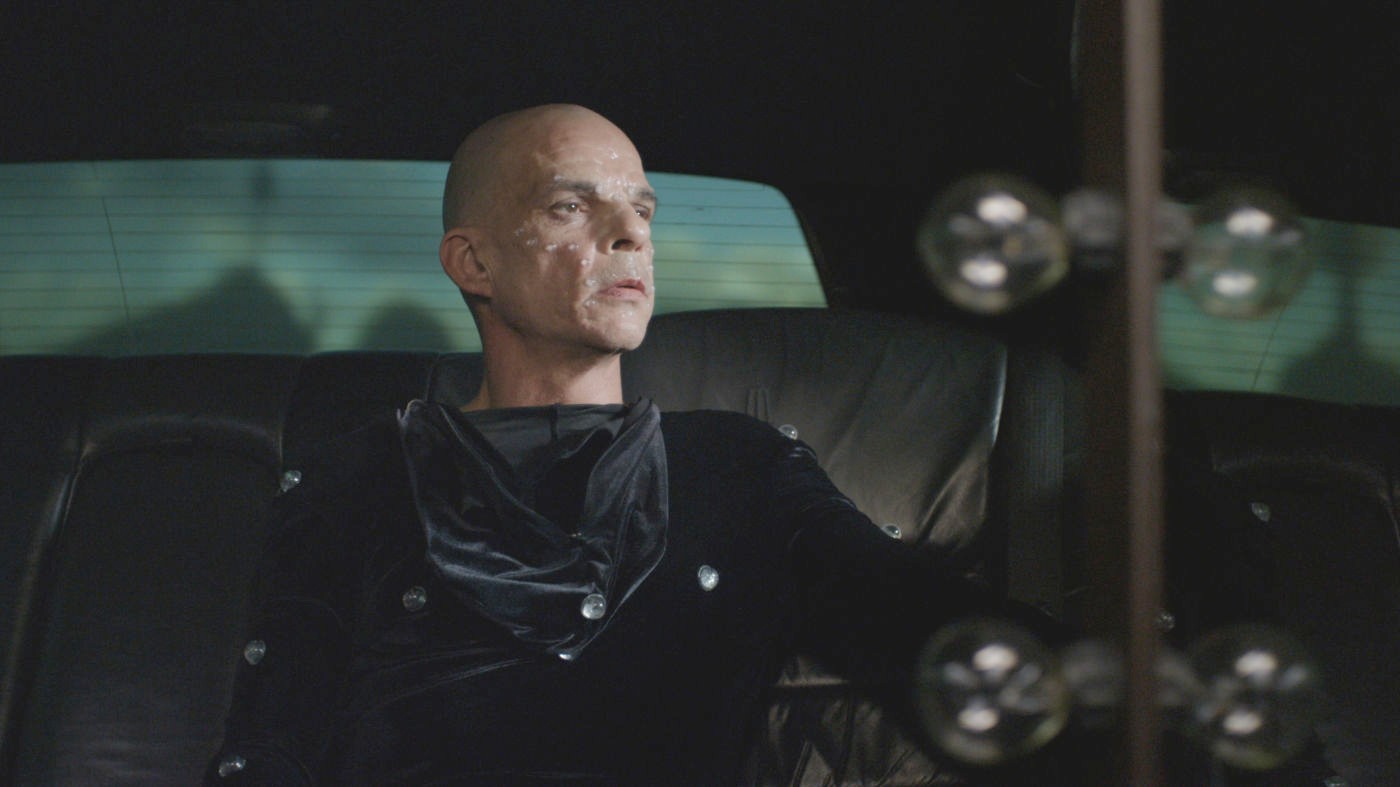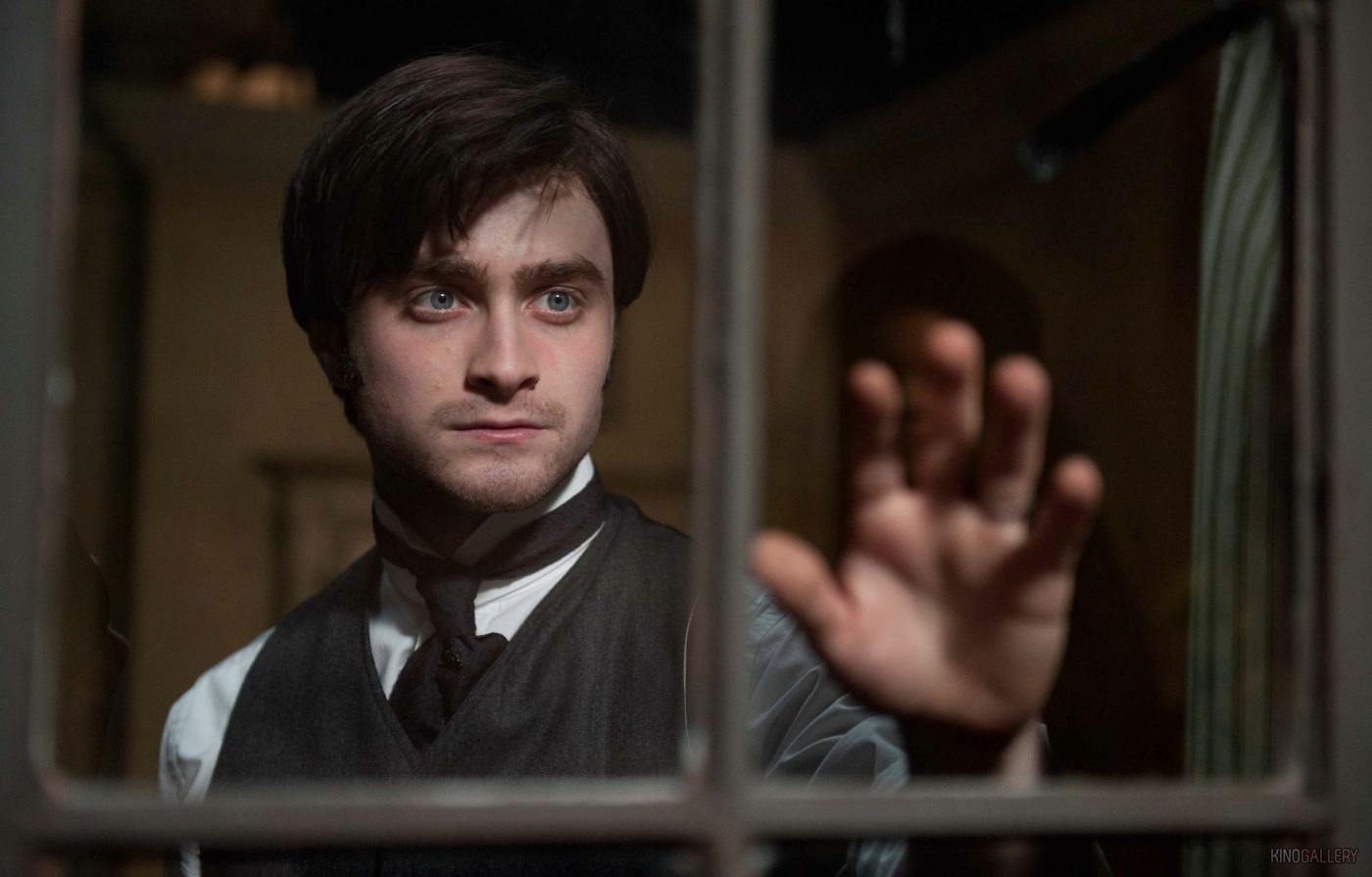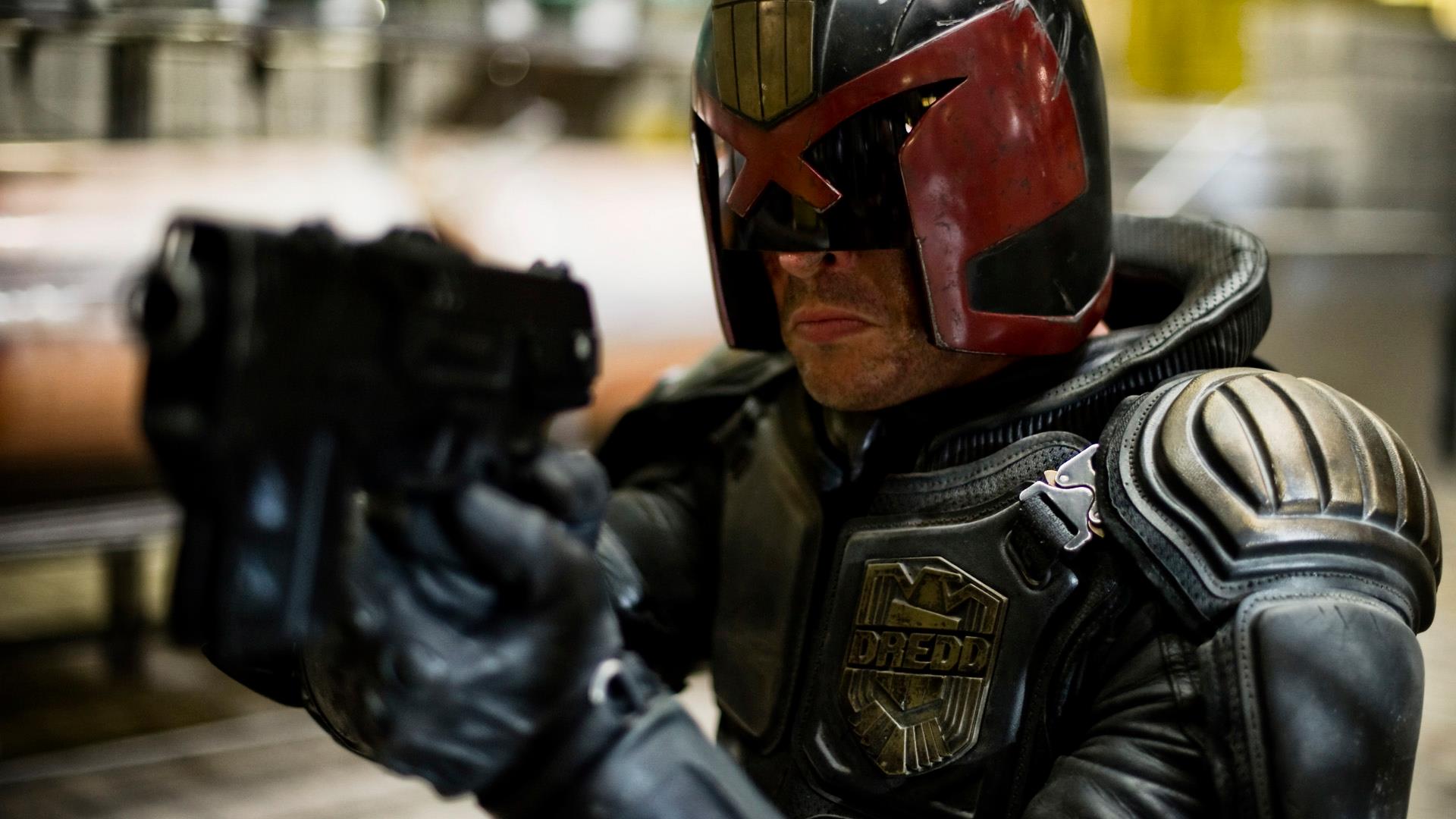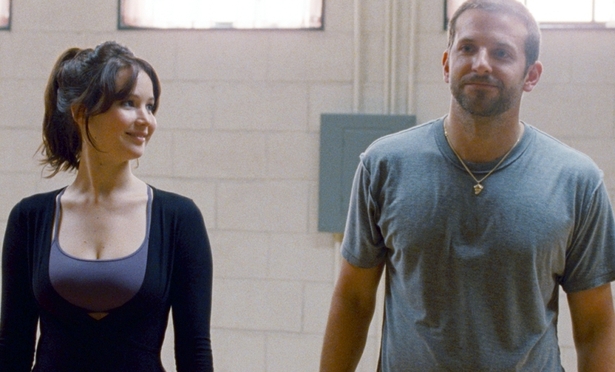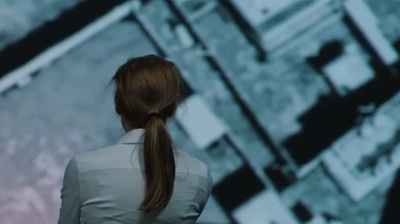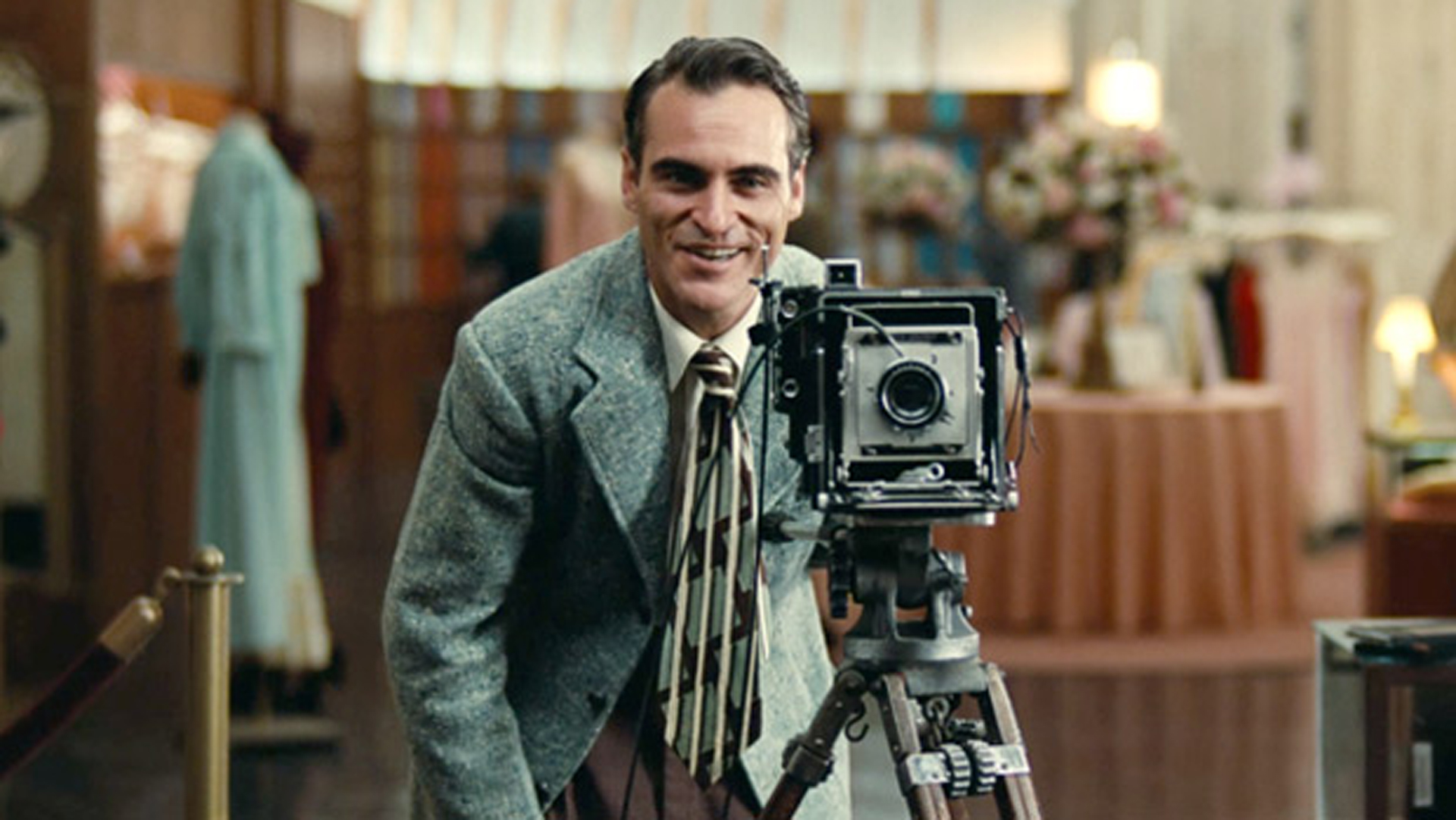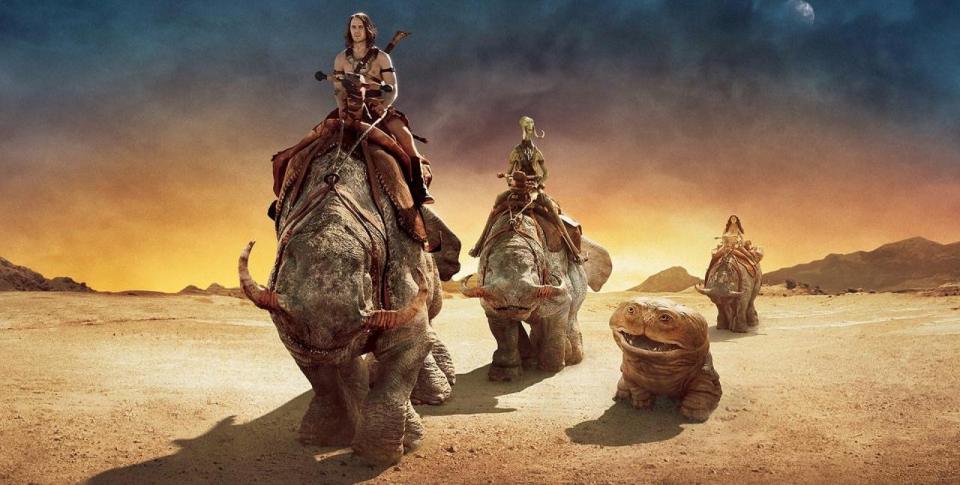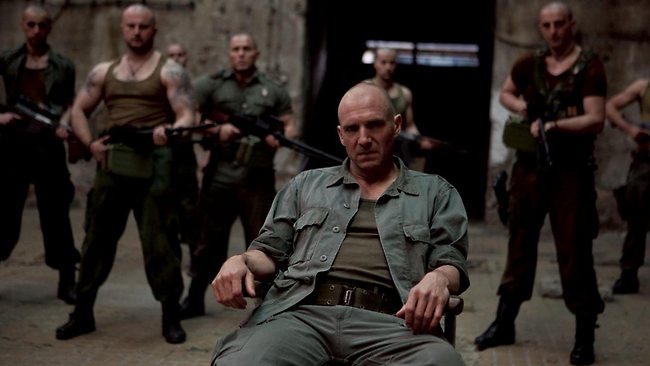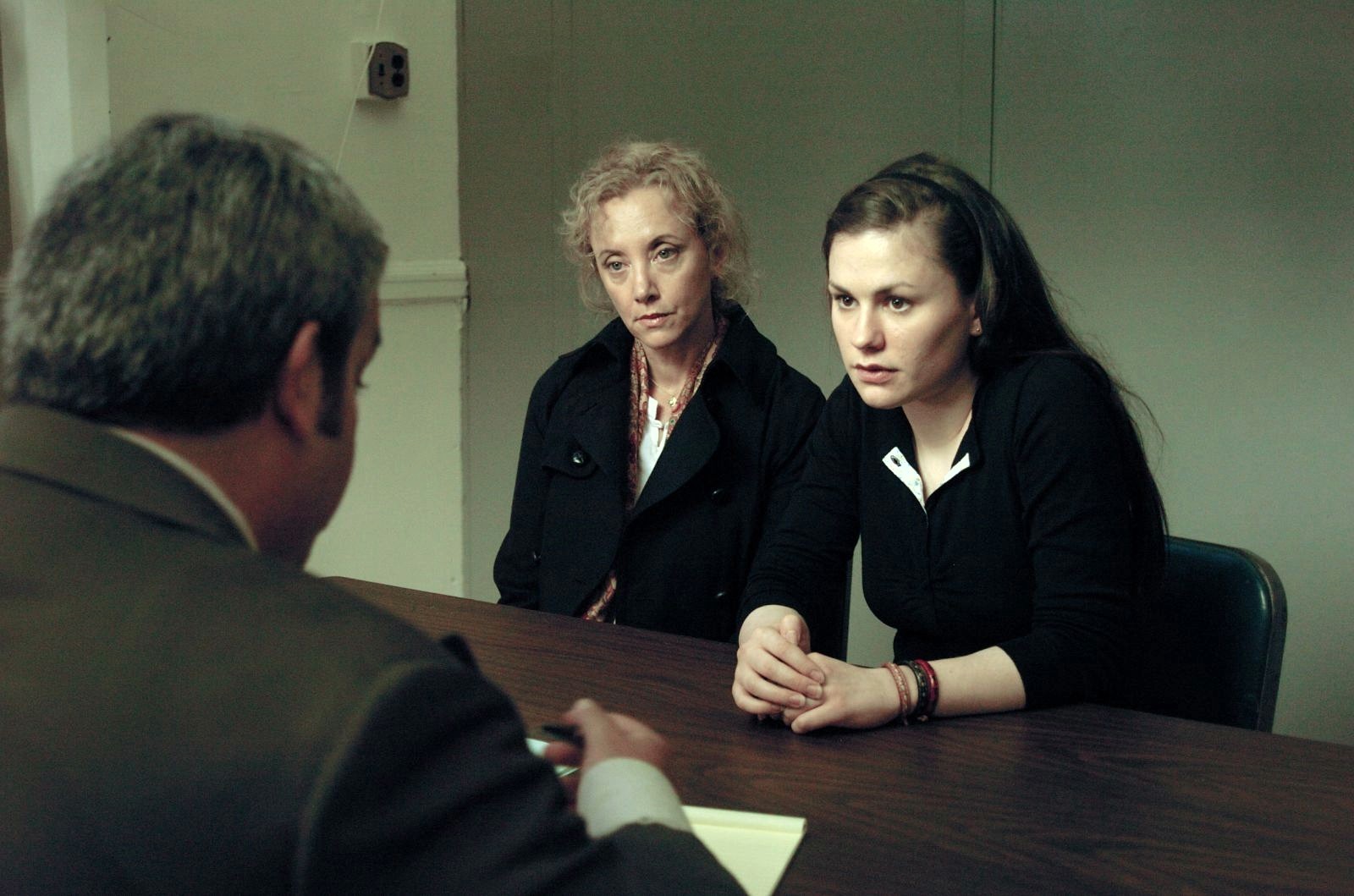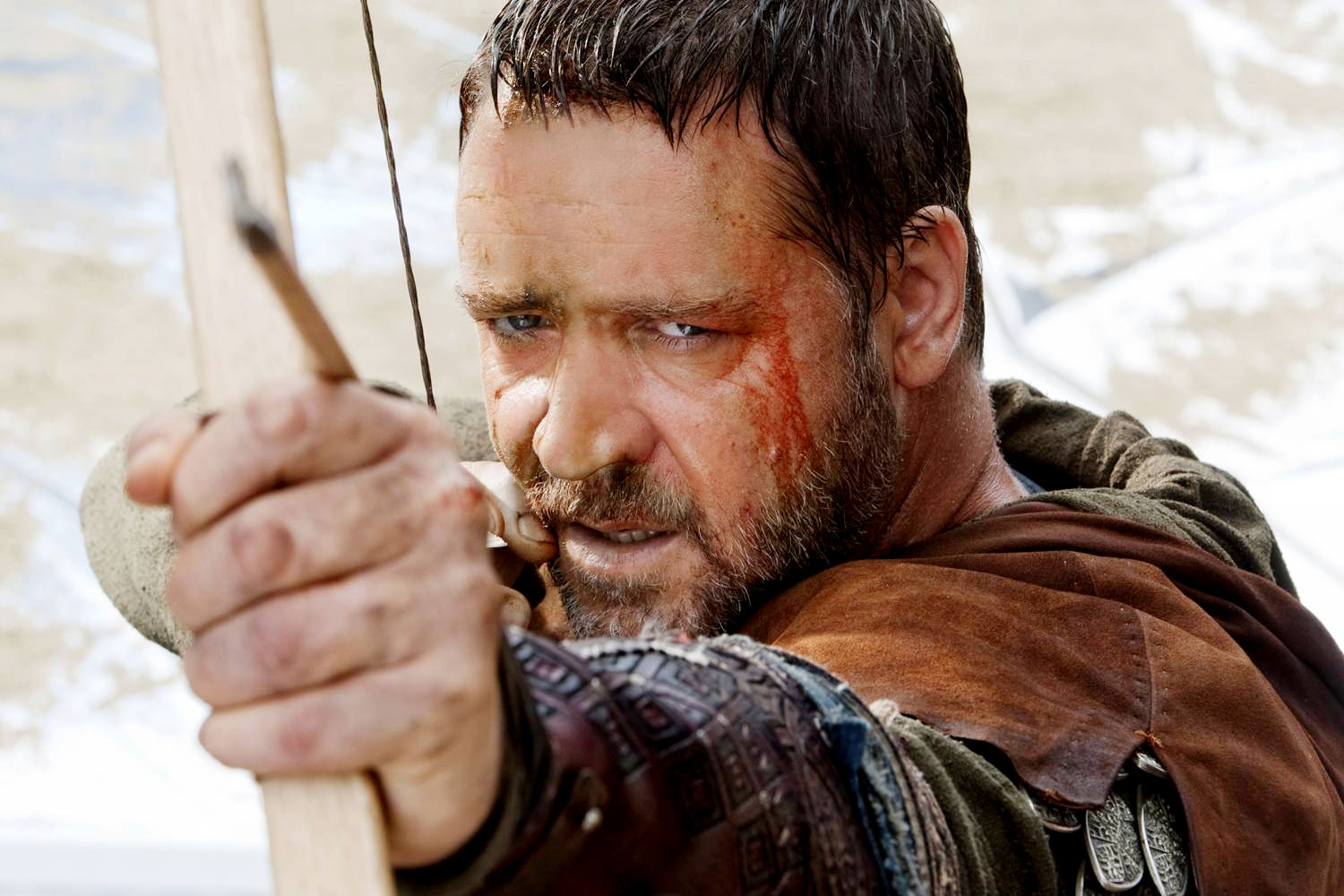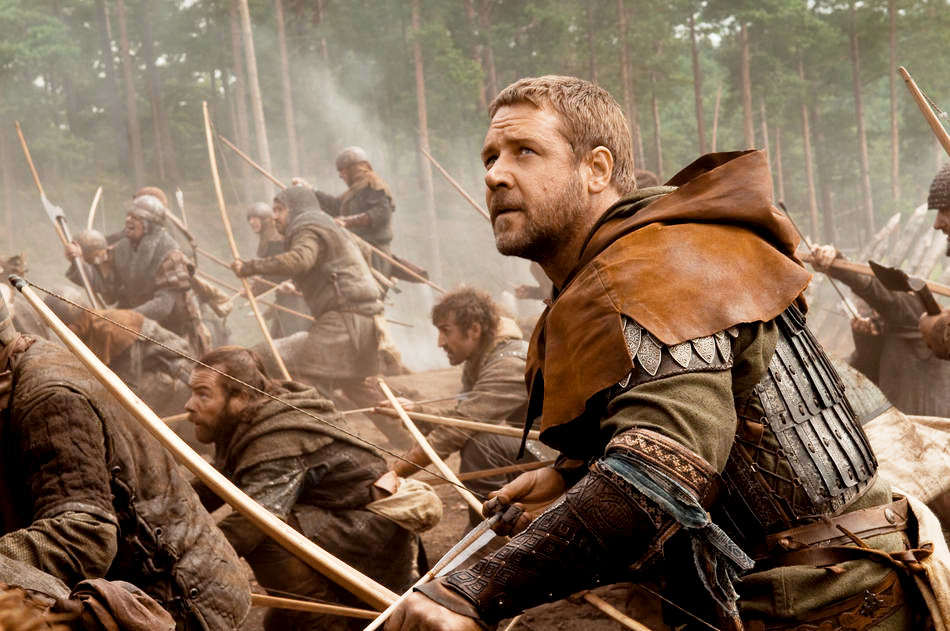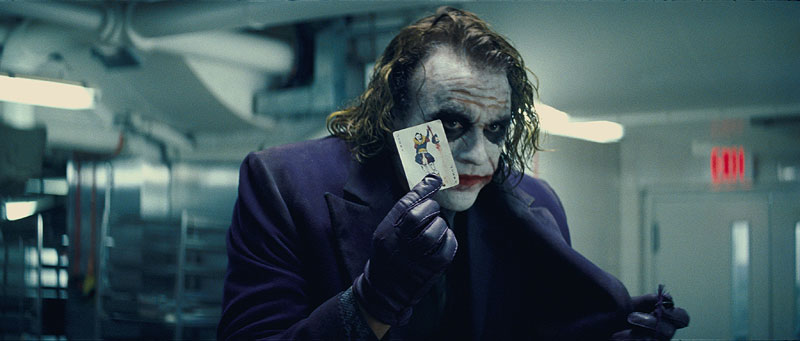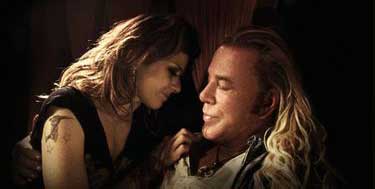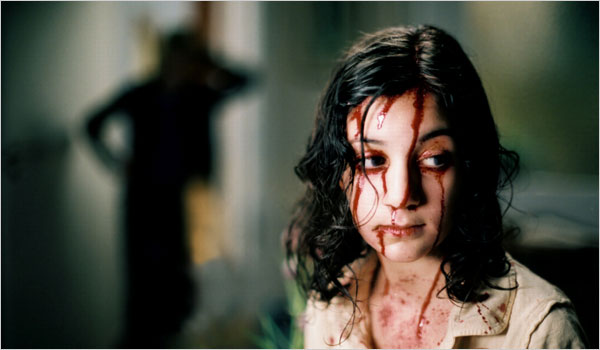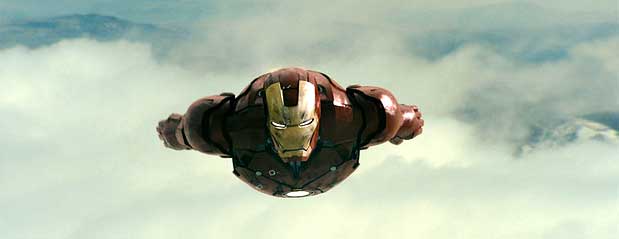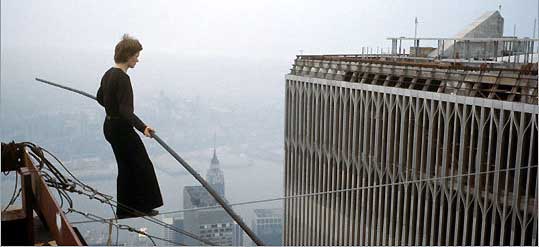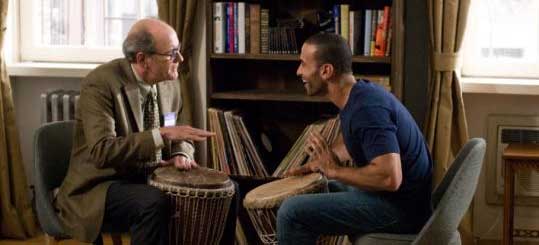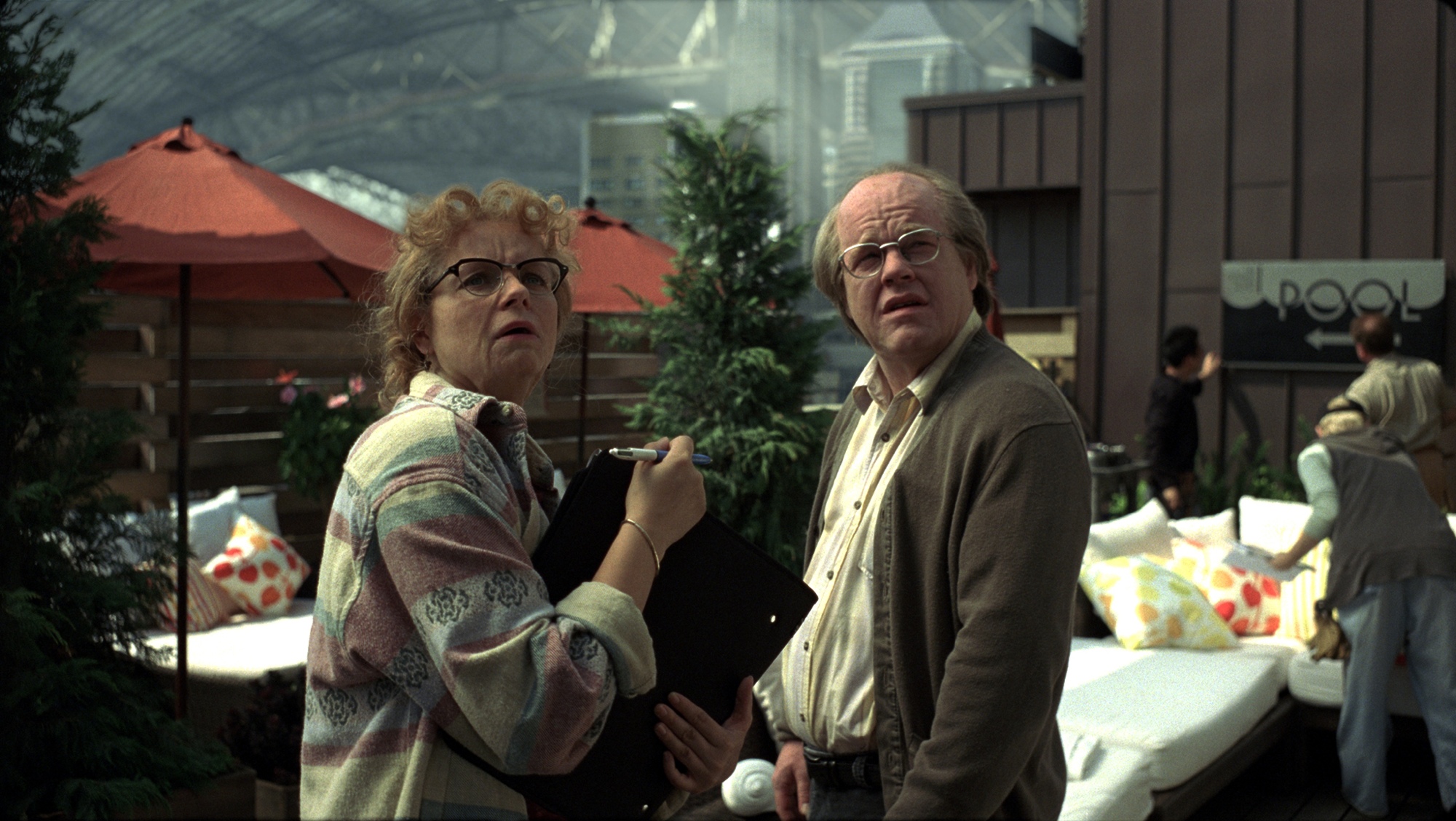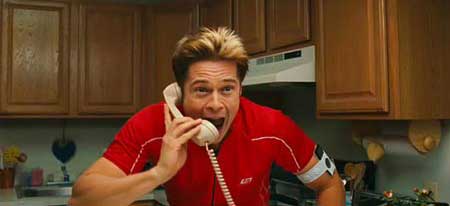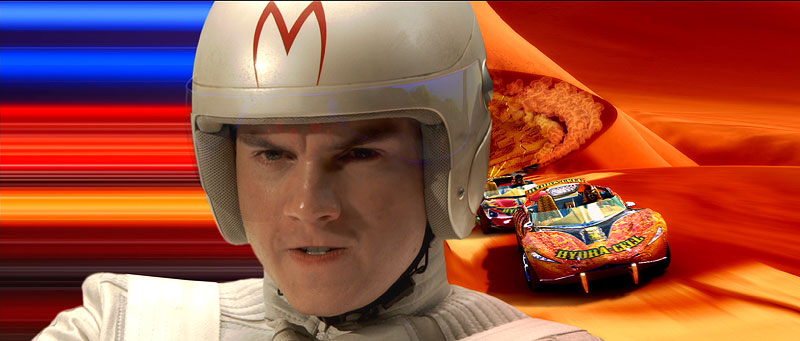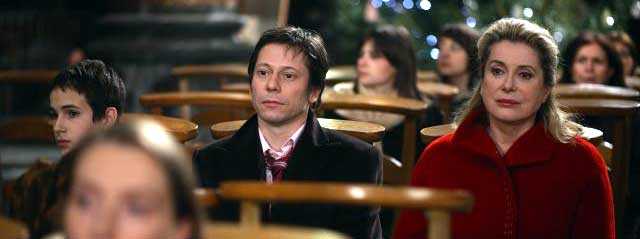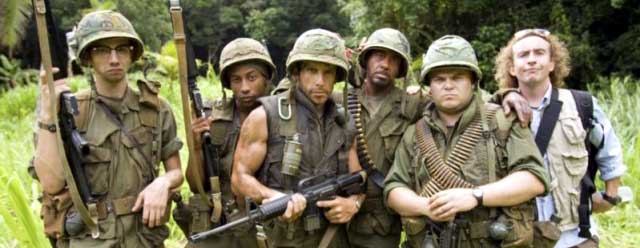Whatever its other faults, 2012 was actually a pretty solid year at the cineplex. In terms of great movies, the crop wasn’t as rich as, say, 1999. (To name just a few from that year: Being John Malkovich, Fight Club, The Matrix, Three Kings, The Iron Giant, Election) But, in general terms, I thought most of the movies that came out this past year avoided obvious pitfalls and delivered at or better than the level they promised.
For example, almost all of the year’s superhero movies were surprisingly good — no real Green Lantern-y whiffs this year. Most of 2012’s unnecessary sequels and even-more-unnecessary remakes — MIB III and Amazing Spiderman, say — turned out better than expected. Horror moved out of the serial killer/torture pr0n ghetto in both conventional (The Women in Black) and unconventional (Cabin in the Woods) ways. Lowbrow, could-be-terrible comedies like 21 Jump Street and Ted actually had some solid laughs to them. And even the intentional B-movies — like Dredd, Lockout, or Abraham Lincoln: Vampire Hunter — all had their moments, even if I can’t recommend some of those in their entirety.
In any case, now that the last few 2012 films have hit DC theaters, and my dissertoral defense obligations are now behind me, it’s at last time for the usual end-of-year list ’round here. Since I didn’t do any individual reviews this past year — I still haven’t decided if those will return for 2013 — I’ve upped the 2012 list to 25 movies, and, at the end, added a few thoughts on some of the others that crossed my field of vision over the past twelve months. Without further ado…
[2000/2001/2002/2003/2004/2005/2006/2007/2008/2009/2010/2011/The Oughts]
1. The Dark Knight Rises: “Theatricality and deception, powerful agents for the uninitiated. But we are initiated, aren’t we, Bruce?” I know Christopher Nolan’s TDKR wasn’t as well-received in many circles as The Dark Knight, and for understandable reasons — the Joker will always be Bat’s #1 nemesis. Still, I loved this closing chapter of Nolan’s trilogy — its audacious scope, its Occupy Gotham meets the French Revolution ambience, its tight connections back to Batman Begins, its menacing yet loopy villain, its repudiation of the ends-justify-the-means arguments of TDK. (So much for the contention in that earlier film that “sometimes the truth isn’t good enough…Sometimes people deserve to have their faith rewarded.” That dubious line of thinking backfires for Alfred, Commissioner Gordon, Wayne, and everyone else who partook of it in the last film.)
I don’t know how The Dark Knight Rises plays to the uninitiated, since, like most fans, I went in presuming that (a) Bane would break the Bat and (b) Talia al Ghul was involved in some capacity. And admittedly there are some problems here, as in all of Nolan’s Batman movies. As soon as Alfred starts going on about French cafes in the first reel, it’s pretty clear where the film will end up eventually. (And that closing doesn’t make sense anyway, since billionaire Bruce Wayne is likely recognizable all around the world, certain Chinese prisons notwithstanding.) And speaking of prisons, how, exactly, did barefooted Bruce get back from somewhere in the Middle East into a Gotham City on lockdown?
All that being said, there was a lot to like here. I enjoyed the intricate plotting of TDKR, and how some of its central points hearkened back to lessons learned in the previous films. (For example, Bruce’s concern, in light of Joker-style escalation, about the fusion reactor becoming a weapon.) I liked how Anne Hathaway was introduced as a prototypical Anne Hathaway character — the Nervous-Nellie maid — before revealing her decidedly-unHathawayesque Selina Kyle. I was consistently entertained by Tom Hardy’s sing-songy Bane voice, including goofy flourishes like his admiring the pre-game rendition of the Star-Spangled Banner. (“He has a beautiful voice!” If only Bane had subsequently gotten a chance to freestyle.) And I thought there were moments of real poetry, such as when, to suggest the passage of time while Bruce’s back healed, a Bane-commandeered Batmobile prototype rolls along a snowy Gotham side street.
One common complaint I heard about TDKR is that it’s a Batman movie without Batman — that the Caped Crusader completely disappears in the second act of the film. I don’t get it, and my theory is people who hold this view have never, personally, been broken. Granted, we all expect that Bruce Wayne will get his back fixed and get back in the game. Still, even if it’s weirdly the most mutually supportive prison on Earth (which makes more sense once you realize Bruce throws down a rope once he got to the top), I like the Lazarus Pit detour, and the ultimate payoff of seeing Bruce/Bats back in action in Act III. Fall down, get back up. Get your back broken, have Tom Conti punch that vertebrae back in. Get the s**t kicked out of you, get rid of that rope and rise.
2. The Hobbit: An Unexpected Journey: “Saruman believes it is only great power that can hold evil in check, but that is not what I have found. I found it is the small everyday deeds of ordinary folk that keep the darkness at bay…small acts of kindness and love. Why Bilbo Baggins? Perhaps it’s because I am afraid and he gives me courage.”
I can see why some folks didn’t cotton to TDKR, but I really can’t get my head around all the Haterade that’s surrounded Peter Jackson’s excellent and entertaining first installment of The Hobbit. This was a great movie! And it was easily as faithful to Tolkien’s book in both tone and story as the latter two Rings films. (For people complaining about the inclusions of Radaghast the Brown, Dol Guldur, and the White Council, I submit to you Osgiliath and Far-from-the-Bookamir. Pale Orc, meet Lurtz.)
Particularly bewildering to me is all the whining about 48 FPS. I thought An Unexpected Journey looked amazing. Granted, I spent a childhood watching Doctor Who, Blake’s 7, and the like, and so I’m used to suspending my disbelief while watching images that seem video-immediate. But still. All the kvetching about the new standard was, in my opinion, totally over the top. (In terms of snapping my abilty to engage with a universe on screen, I had more issues with the operetta-ness of Les Mis. Er…are they really going to sing every single line of this movie? Russell Crowe too?)
As for all the complaints about the pacing, admittedly this first chapter was languidly told — Three and a half hours and we only got to Out of the Frying Pan, Into the Fire. But, y’know, I like spending time in Middle Earth — If the dwarves want to sing again, have at it, good fellows. (Just don’t go all operetta on us.) And given that, for example, GRRM’s Song of Ice and Fire books are getting ten hour adaptations each, or Treme or Boardwalk Empire are enjoyable 35-hour stories where, often, not much happens plotwise, I had no problem at all with the expanded length — particularly as the additions were straight from Tolkien’s notes and not, say, 40 minutes of dwarf-tossing jokes. Let’s hope that holds through the third film, which is the one I’m really worried about.
In any event, I thought An Unexpected Journey was a great adaptation of the first third of The Hobbit, and that it threaded the needle quite well between feeling like it took place in the same world as the LotR trilogy and bringing a more lighthearted and jovial tone to Middle Earth, in keeping with the children’s book nature of The Hobbit. Bring on the incident with the Dragon.
3. Beasts of the Southern Wild: “I hope you die and when you die, I’ll go to your grave and eat birthday cake all by myself!” I tend to consider myself a cynical and curmudgeonly fellow, so I was quite surprised that Beasts of the Southern Wild — a film I expected to find aggravatingly twee — kinda knocked me sideways. I’m not even sure if the movie would hold up to a second viewing — When I reflect on it now, those scenes in Beast that don’t feel like scraps of dream seem like they probably shouldn’t have worked.
But, at least that first time around on the big screen, this fairy tale of a young girl living on the wrong side of the Louisiana levees (a.k.a. “the Bathtub”) had a strange sort of magic to it. I particularly liked the End Times conflation of Katrina and global warming, and vibed with the film completely around the time Hushpuppy feared that the melting ice sheet would inadvertently unleash the four boar-monsters of the apocalypse. Pretty soon, we’ll all live in the Bathtub.
4. The Avengers: “Shakespeare in The Park? Doth mother know you weareth her drapes?” In the 2011 list, I voiced my sneaking suspicion at #14 that Joss Whedon’s The Avengers wasn’t going to work. Consider that crow eaten. Even despite a bland opening sequence and a third act alien invasion that felt weightless, this was a surprisingly fun time at the movies, and perhaps the best popcorn film of the summer.
In particular, I liked that this was never a particularly “dark” movie. The Avengers aren’t tortured souls like Batman or even the X-Men, and Whedon, a former X-Men writer, didn’t portray them as such. Instead he was able to capture the voice of each of Earth’s Mightiest Heroes — Cap the boy scout, Thor the thunder god, etc. — throw them in a hovering aircraft carrier together, and let shenanigans and shawarma ensue.
True, Hawkeye in particular got short shrift, Scarlett Johansson was still woefully miscast as the Widow (Olga Kurylenko anyone?), and Cobie Smulders, a.k.a. your Aunt Robin, just isn’t much of a film actress. (Exhibit A: this alternate opening.) Still, I liked the balance Whedon came up with here, where Robert Downey’s Iron Man was given the dramatic arc befitting his star wattage, but Chris Evans’ Captain America still ended up leading the team. And, arguably for the first time on film, Whedon got the Hulk exactly right.
5. Looper: “I’m from The Future. You should go to China.” Speaking of Marvel comics, Looper [moderate spoilers] may just be the best Franklin Richards movie we see in awhile. In any case, I wasn’t much for either Brick or especially The Brothers Bloom, but I thought Rian Johnson’s third film was a smart, well-crafted science fiction story that was very worthwhile.
As in most time travel tales outside of 12 Monkeys, Looper‘s final few scenes don’t make any sense. (Spoiler: JGL’s decision at the end would seemingly have to result in everything Bruce Willis did being rolled back — Thus, none of that carnage at Jeff Daniels’ compound or along the road would ever have happened, and there would be no money lying around, etc. etc.)
But until then, Looper is a satisfying and stylish mishmash of time travel, telekinesis, and the Chandler and Hammett-isms (by way of Miller’s Crossing) that inspired Johnson’s Brick. It also included the creepiest time travel outcome I’ve seen since people were ‘porting into walls in The Philadelphia Experiment. (That would be the grim fate of Paul Dano’s future-self.)
6. Lincoln: “I wish He had chosen an instrument more wieldy than the House of Representatives.” I’ve already noted my problems with the history here: It’s rather ridiculous to argue that the lesson of the Civil War is that compromise is awesome, or that the constitutional amendments that emerged from it are a product of such. Quite the contrary, really. Spielberg and Kushner also vastly overstate the danger that the Thirteenth Amendment would not pass here, and Kushner, given the comments cited in that earlier post, unfortunately doesn’t seem to understand Reconstruction at all.
That being said, Daniel Day-Lewis’s eerie evocation of our sixteenth president is the performance of the year, and I remain impressed that this film, while a touch too Spielberg-y in its opening and closing moments, nonetheless forewent the traditional biopic route and embraced a narrowcast, nineteenth-century CSPAN aesthetic instead.
7. Oslo, August 31st: “Look at my life. I’m 34 years old. I’ve got nothing. I don’t want to start from scratch.” A movie that made it here via Netflix, Oslo, August 31st is a well-observed day in the life of a recovering heroin addict (Anders Danielsen Lie), as he returns to his old haunts and tries to make peace with the shambles he feels he’s made of his existence.
Looking desperately for a way to reconnect to the world at large, or at least to transcend his current despair, Anders has a series of conversations with former friends and enemies, during which he discovers that even those who didn’t miss the train of life going by are, by and large, just going through the motions. Everything here feels uncomfortably true, from Anders’ visit to see a former partner in crime, now a married academic, to his self-defeating job interview, to his plaintive calls to the woman who disappeared, to his falling back into old habits. A quietly devastating film.
8. Moonrise Kingdom: “I love you, but you don’t know what you’re talking about.” True, this Wes Anderson film could not be any more Wes Anderson-y — I’m looking at you, Bob Balaban the omniscient narrator — so if that’s a problem for you, I wouldn’t expect Moonrise to change your opinion of the man’s work.
As with the less-successful Life Aquatic and Darjeeling Limited, Anderson is ensconced in his usual sandbox. Nonetheless, this story of two tweenagers enjoying a summer love, and the problems this causes for all the conflicted and compromised adults around them, ranks up there with Rushmore, The Royal Tenenbaums (#46), and The Fantastic Mr. Fox among Anderson’s best. It’s also a beautifully shot film, redolent of the sun-drenched afternoons of years gone by.
9. Cabin in the Woods: “Cleanse them. Cleanse the world of their ignorance and sin. Bathe them in the crimson of – Am I on speakerphone?” When it comes to Joss Whedon, I’m not at all what you’d call a browncoat. I liked Firefly and Serenity alright, but much prefer Farscape when it comes to Blake’s 7 knockoffs, and neither Buffy nor Angel spoke to me like it speaks to many. (The West Wing is another show I never understood all the love for, but I digress.)
At any rate, consider me as surprised as anyone that both of Whedon’s 2012 films ended up in this year’s top ten. Sure, this outside-the-box take on teen slasher tropes is a gimmick movie, and one that’s more wry than it ever is frightening. Still, at least the first time around, what a ride Cabin turned out to be — It’s rare to watch a third act of a film feeling like just about anything could happen. I just wish we’d seen more of “Kevin.” (see pic above)
10. Killing Them Softly: “This guy wants to tell me we’re living in a community? Don’t make me laugh. I’m living in America, and in America you’re on your own. America’s not a country. It’s just a business. Now f**kin’ pay me.” This is another movie that racked up a lot of negativity for some reason, presumably due to it being mis-marketed as an action/gangster film.
Since I knew going in that this was Andrew Dominik’s follow-up to the strange and languid Assassination of Jesse James by the Coward Robert Ford, I got about what I expected – a dark character piece that almost-but-not-quite-successfully tries to fuse Cogan’s Trade with a commentary on the Iraq War, the financial crisis, and general disillusionment in the Age of Obama. Personally, I liked spending time with these guys — Scoot McNairy and Ben Mendelsohn’s twin screw-ups, Richard Jenkins’ officious middleman, Gandolfini’s broken assassin. And, while the political angle didn’t quite gel, I still admired what Dominik tried to do here.
11. Amour: “Things will go on, and then one day it will all be over.” Not exactly the best time you’ll have in a theater this year — Cristian Mungiu’s 4 Months, 3 Weeks, & 2 Days comes to mind as a similarly unrelenting two hours at the movies. Still, Michael Haneke’s unflinching study of an elderly couple staring dementia and death in the face has a grim power to it, as well as two mesmerizing performances by Jean-Louis Trintignant and Emmanuelle Riva.
I can assure you, I don’t plan to sit through this film again any time soon. Still, Amour puts the lie to so many other depictions of love you see at the movies, and I left E Street afterwards both somewhat shaken by it and thinking it was time to carpe some diem (or as the kids say, YOLO) right now, before it’s too late.
12. The Grey: “Once more into the fray. Into the last good fight I’ll ever know. Live and die on this day. Live and die on this day.” And if old age doesn’t get ya, there’s always wolves, y’know? First, let me be clear: This movie is as wrong about wolves as another film I’ll get to in a bit is wrong about torture. All the Canis lupus stuff in here is abject nonsense.
But, to me, the wolves were really just the dispatching agents in this often-gripping existential drama. The real story of The Grey isn’t about wolves at all. It’s about Liam Neeson and his pack of tough-guy survivors coming to grips not just with their looming mortality, but with the reasons they wanted to live in the first place. In the Alaska wilderness, as in Paris or anywhere else, nobody gets out alive.
13. The Deep Blue Sea: “Beware of passion, Hester. It always leads to something ugly.” Just as past years have seen dueling underwater monster movies (Leviathan/Deepstar Six), asteroid disaster flicks (Armageddon/Deep Impact), and Truman Capote bios (Capote/Infamous) and 2013 will have two separate attacks on 1600 Penn (Olympus Has Fallen/White House Down), 2012 featured three quite good movies about women forsaking their kind, boring husbands for passionate, simpleton lovers, and subsequently running into a social buzzsaw as a result.
All of ’em made this list, but in the end The Deep Blue Sea, Terence Davies’ lush evocation of postwar England, garners the top spot among them. Along with memorable turns by Rachel Weisz and Tom Hiddleston, occasionally dream-like scenes like Londoners awaiting the Blitz in the subway tunnels or singing along to “You Belong to Me” have stuck in my memory this year.
14. Argo: “Brace yourself; it’s like talking to those two old f**ks from The Muppets.” Ben Affleck’s well-made chronicle of a successful CIA operation along the fringes of the Iran hostage crisis often felt like transparent Oscar bait to me. The Hollywood stuff felt it like needed to be more fleshed out and, since the history is well-known, the many attempts to ratchet up the suspense in the third act just didn’t work for me personally. (YMMV.)
Still, I was impressed by how well-balanced Argo came out — From its opening storyboard sequence, the movie doesn’t mince words about our many misadventures in Iran, making what could have been simply a depressing jingoistic exercise into a more thoughtful story of diplomatic blowback. Overall, I prefer Affleck’s Gone Baby Gone and The Town — Still, as a director, he’s now 3-for-3.
15. Celeste and Jesse Forever: “You know what your problem is? Contempt before investigation. You think you’re smarter than everybody else.” Full disclosure: Writer-star Rashida Jones was an acquaintance of mine in college, so I went in to Celeste and Jesse hoping more than usual that I would like it. Nonetheless, after a rough 10-15 minutes at the outset, this well-observed and wistful after-the-rom-com, about the break-up of a longtime couple, gradually gets to work on you.
It seemed like bit players like Elijah Wood (as Rashida’s gay boss/BFF) needed more to do, and Chris Messina has played the surprisingly wise frat-bro so many times by now that I can’t really take him seriously anymore. But otherwise, Celeste and Jesse earns it emotional beats and, by the time the final reel rolled, I felt quite invested in it.
16. Cloud Atlas: “Our lives are not our own. From womb to tomb, we are bound to others. Past and present. And by each crime and every kindness, we birth our future.”
Here’s yet another 2012 film where it feels like critics just began to pile on mercilessly at a certain point. The Wachowskis and Tom Twyker’s adaptation of David Mitchell’s high-brow sci-fi novel doesn’t quite gel, and some of the plotlines — Ben Whishaw’s amanuensis, Tom Hanks after the Fall — were more interesting than others, most notably Jim Sturgess in the South Pacific and Jim Broadbent’s nursing home jailbreak. (Also, no nice way to put this, but much like Keira Knightley, Halle Berry is an A-list actress who’s never all that good.)
But even if it doesn’t live up to its ambition, Atlas is still an impressive and intellectually (if not emotionally) engaging feat. Granted, it wasn’t subtle about its message, but the degree of difficulty here should count for something. At least Atlas was reaching for something totally new — and every so often, especially during the occasional montage bringing together the six tales, you can catch a glimpse of it.
17. Take This Waltz: “Life has a gap in it… It just does. You don’t go crazy trying to fill it.” The second of this year’s adulterous love triangles — this one set to one of Leonard Cohen’s many classics and The Buggles — Sarah Polley’s follow-up to Away From Her has a low-key, natural, and lived-in feel that’s hard to fake.
True, Michelle Williams and Seth Rogen felt a little too baby-talk-schmoopy in their scenes together, and Luke Kirby’s handsome pedicabbie always just seemed like a self-absorbed creepshow to me. But one of the strengths of this film is how all the characters here seem like three-dimensional human beings, with all the needs, vulnerabilities, and suspect decision-making attending.
18. Rust and Bone: “We’ll continue…but not like animals.” Speaking of follow-ups, Jacques Audiard’s second film after A Prophet felt like the movie the much-hyped Silver Linings Playbook wanted to be. This rough-and-tumble romance between a street fighter (Matthias Schoenaerts) and a damaged whale instructor (Marion Cotillard) after a terrible accident is never as good as A Prophet, and it goes seriously off-the-rails in its third act, around the time Cotillard tattoos her leg-stumps “gauche” and “droit.” But up until then, Rust and Bone manages to sidestep a surprising number of movie-of-the-week pitfalls and keep its gutter-punch rawness intact.
19. Seven Psychopaths: “No, it doesn’t! There’ll be one guy left with one eye. How’s the last blind guy gonna take out the eye of the last guy left?” I didn’t like In Bruges as much as a lot of people, and occasionally this new film by playwright Martin McDonagh suffers from the same outrageousness-for-its-own-sake. (Case in point: the scene where Woody Harrelson interrogates Gabourey Sidibe.)
Still, I kinda liked how this increasingly loopy and laconic film seemed to realize it would be more fun just to hang around with its gaggle of likable actors (Sam Rockwell, Christopher Walken, Colin Ferrell, Tom Waits, Zeljko Ivanek, Harrelson) for awhile and just dropped the plot. I only wish McDonagh had found more to do with Olga Kurylenko and especially Abbie Cornish, who are (literally and figuratively) wasted here.
20. Anna Karenina: “Is this about my wife? My wife is beyond reproach. She is, after all, my wife.” Like Killing Them Softly and Cloud Atlas, Joe Wright and Tom Stoppard’s adaptation of Anna Karenina is a film I admired for its ambition, even if the conceit — here, that all of the Russian society scenes take place on a nineteenth century stage — doesn’t end up quite working. And even if there’s some of the same unnecessary grandstanding that marred Atonement‘s Dunkirk scene (intricate shots are fun and all, but they should serve the story), this is quite a beautiful picture.
While Keira Knightley unfortunately doesn’t make much of an impression in the title role, and Aaron Taylor-Johnson of Kick-Ass and Savages just seems out of his element as Vronsky, Jude Law brings pathos to a character that could’ve just seemed like the villain, and there are a number of enjoyable turns in the margins of this story, from Domhnall Gleeson (son of Brendan) covering the sociopolitical elements of the book to Matthew MacFadyen — who seemingly jumped right into late-Alec Baldwin mode right after his stint as Mr. Darcy in 2005 — as the oafish Oblonsky.
21. Skyfall: “Do you see what comes of all this running around, Mr. Bond? All this jumping and fighting, it’s exhausting!” Speaking of beautiful films, Daniel Craig’s third outing (and Sam Mendes’ first) as 007 doesn’t match the heights of Casino Royale, but it’s looks like the billion dollars it made, and it’s a far sight better than the sophomore misstep of Quantum of Solace. (It also features an instant classic Bond song in Adele’s title track.)
My biggest problem with Skyfall, and it’s a hard one to overlook, is that, in a transparent effort to capture some of that Dark Knight cachet, they effectively turned James Bond into Batman here. So Bond is now a rich orphan who grew up in Scotland’s version of Wayne Manor? Erm, ok. It doesn’t help matters that Javier Bardem’s ridiculous villain — The Joker + gay panic, basically — has exactly the same goofy plan as the Clown Prince of Crime did. (The next Big Bad to get captured on purpose, apparently? Gary Mitchell Garth Khan Gruber.)
But this is a Bond movie, so set your low expectations accordingly. Even if it feels like we’re already approaching Moonraker or Octopussy territory only three movies into the Craig era, this is still among the better outings in this long and storied franchise.
22. Django Unchained: “Gentlemen, you had my curiosity. But now you have my attention.” From the opening moments of Quentin Tarantino’s Django Unchained, it’s clear this film is going to be a bit of a mess. (Our title card reads: “1858. Two Years Before the Civil War.” Uh…that’s three years before the war, Quentin.) And, to be honest, I liked this movie better when it was called Inglourious Basterds — Here, we have basically the same experience, with QT once again righting history’s wrongs with a blood-spattered vengeance.
I actually liked that Tarantino decided to put the evils of American slavery front and center in this film, since it’s an ugly underside of our history that, cinematically, has been pretty much buried. (One admirable exception to prove the rule: CSA.) The funniest scene in the movie is probably QT riffing off both Blazing Saddles and Birth of a Nation with his Klansmen complaining about their eyeholes.
Nonetheless, I’m not sure why, given all the very real horrors of slavery QT often draws from, we ended up with the exceedingly fake Mandingo Fighting as a centerpiece of this story, other than it was in some blaxsploitation films QT used to enjoy. With that in mind, and more egregiously, a good hour of this movie makes absolutely no sense: Why wouldn’t Schultz and Django just be like, “I’m a lonely German guy who will pay top-dollar for a slave that speaks German?” (Tarantino tries to address that particular question here. I don’t think it works.)
Still, however sloppy and self-indulgent, Django was a decently enjoyable movie for most of its run. It would be nice, tho’, to see Tarantino take a stab at another Jackie Brown-style project at some point. As it is, it feels like he’s continuing to disappear up his own ass.
23. Holy Motors: “Weird! Weird! Weird!” I’m usually not one to end a movie once I’ve started it, but I turned off David Cronenberg’s Cosmopolis, via OnDemand, well before the end. (I hear Paul Giamatti shows up at some point.) Far more entertaining — and much, much stranger — was Leo Carax’s bizarro stab at the wandering limousine genre this year.
As with Django, it seemed like there was a lot of name-dropping and inside baseball, of the cinema history variety, going on in Holy Motors, which is behavior I find irritating a lot of the time. But I found Denis Lavant’s mad misadventures here compulsively watchable, even if we passed basic coherence two or three lefts ago.
24. The Woman in Black: “I believe even the most rational of minds can play tricks in the dark.” This wasn’t a Cabin in the Woods-style reinvention of horror tropes by any means. That being said, I quite enjoyed this played-straight Hammer films throwback, with Daniel Radcliffe unwisely investigating ghostly happenings at a mansion along the moors.
Rather than relying solely on blood, guts, and jump cuts, The Woman In Black resurrects classic cinema techniques and all the old standbys of this particular genre — rocking chairs, Victorian dolls, creepy children and whatnot — to put the audience ill at ease for ninety minutes. In sum, a slight but effective scare machine.
25. Dredd: “In case you have forgotten, this block operates under the same rules as the rest of the city. Ma-Ma is not the law… I am the law.” As with every year, a lot of films could have gone in this final spot on the list — Bernie, Life of Pi, Savages, Marley, ParaNorman. But I’m giving it to Pete Travis and Alex Garland’s Dredd, because it’s a good example of what went right at the movies in 2012.
There are better movies than Dredd this and every year, but you’d be hard-pressed to find a better Dredd movie. Travis and Garland took what was distinctive about this character – give or take his Watchmen-like satire of American superheroes — and transported an issue of the comic to the screen, no more, no less. Extra points for a likable cast (Olivia Thirlby, Wood Harris, Lena Headey) and for Karl Urban — unlike Stallone back in the day — never taking off the helmet.
MOST DISAPPOINTING:
Prometheus: Pretty much everything that needs to be said about the dumb-as-dirt disaster this turned out to be has been encapsulated by the Red Letter Media guys. Whhhhyyyyyy? Why does a movie with such a terrible script ever get greenlit? Why does Damon Lindelof, after putting out an idiotic film like this, continue to get work in Hollywood?
It’s sad, since even notwithstanding the greatness of Alien and Aliens (and I’d submit that Alien 3 and Alien: Resurrection are more admirable failures than this film), there are elements of a much better movie here — most notably Michael Fassbender’s T.E. Lawrence-loving android and the sheer look of the picture. Otherwise, however, this was just a terrible, nonsensical movie, and I ended up just feeling embarrassed for Fassbender, Charlize Theron, Idris Elba, and everyone else involved. For shame.
MOST OVERHYPED:
Silver Linings Playbook: I like David O’Russell. I like Jennifer Lawrence. I have no issues with Bradley Cooper. But, Lordy, I hated this film, and I just can’t figure out where all the hype is coming from. Granted, SLP falls into a very specific genre of movie I despise, whereby some severely damaged dude is suddenly saved from loneliness, madness, and/or general despair by a perfectly unique and perfect girl for him. (See also: Sideways, Punch-Drunk-Love, and all the other many iterations of the Manic Pixie Dream Girl.) Honestly, all of you who keep making this same movie, go see Amour or something.
But even notwithstanding that sort of ubiquitous rom-comminess, SLP just seemed really by-the-numbers to me. The only variation on the same-old stale tale, as far as I could tell, is that this time there’s a really important game AND a really important dance competition at the end. And while Jacki Weaver does some memorable things as Bradley Cooper’s long-suffering mom, I didn’t take DeNiro seriously here at all. Just a bad movie.
Zero Dark Thirty: As it happened, I kinda hated Zero Dark Thirty too, but at least here I get where the positive reaction is coming from. To be honest, I expected going in that I’d leave ZD30 conflicted — that it would be a good movie undone by its egregious lies about torture. As it turned out, this is not even a good movie — it’s strongest pleasure consists of watching quality character actors — Mark Strong, James Gandolfini, Stephen Dillane – in brief turns as suits. (Tom Donilon is English?)
For one, ZD30 is far too blatant in its CIA embeddedness. Every CIA character here is a well-meaning tortured soul, heavy-hearted with the burden of saving the world. There’s no mention of, say, Tora Bora. The CIA’s egregious, world-historical fuck-ups, like arguing there were WMD in Iraq, are brought up only in passing. The agency’s outright crimes, like, say, waterboarding a guy 180 times to obtain a false positive, aren’t even mentioned. Watching Type-A go-getter Jessica Chastain and her ponytail flounce around for America for two and a half hours, you’d have no idea that her real-life counterpart and her ilk have been found guilty of, among other things, torturing and sodomizing an innocent man.
Admittedly, it could be because this pro-torture distortion of the history put me in an increasingly foul mood. Still, even as a movie Zero Dark Thirty has serious problems. As one of Chastain’s co-workers, poor Jennifer Ehle has to offer up some of the most ridiculous telegraphs of her impending death since Lt. Deadduck in Hot Shots. And I found the last forty minutes or so of the film, which depicts the actual raid on bin Laden’s compound in excruciating detail, to be a total snooze.
We know what’s going to happen here. And since we’re already in Fantasyland as far as the efficacy of torture goes, why not add sharks or tigers or man-eating bears to this war pr0n raid on OBL’s Afghan fortress? Or how about a badass female #2 (Maggie Q? Olga Kurylenko?) to fight Chastain, martial-arts style, over a deep chasm or conveyor belt or something? Might as well, since we’re already far afield from anything approaching the Real World. In sum, this film is sheer propaganda, and ham-handed agitprop at that.
The Master: Going into this film, I was rooting for Paul Thomas Anderson to build on the promise of the first hour of There Will Be Blood. Unfortunately, The Master is a pretentious bore, and not nearly as deep as it thinks it is. Get past all the Kubrickian grand-standing — Kubrick has clearly replaced Scorsese and Altman as PTA’s object of homage these days — and Anderson has made another variation of the same movie he’s always made, from Hard Eight to Boogie Nights to Magnolia to TWBB: People create fake families for themselves, look for validation in those families, and are ultimately let down by those families. It wasn’t a very interesting point three movies ago.
Poor Joaquin Phoenix sweats Method blood to give his character some resonance, and Philip Seymour Hoffman and Amy Adams have their (brief) moments of note — To his credit, PTA always does seem generous with his actors. But none of them can do anything with what they’ve been given. The Master, unfortunately, is yet another solid case of the Emperor’s New Clothes.
MOST UNFAIRLY MALIGNED:
John Carter: Peter Jackson’s first installment of The Hobbit could go here, as could Cloud Atlas. But, in the end, it seems like no movie got a tougher racket this year than Andrew Stanton’s estimable adaptation of John Carter. True, I watched this on Netflix rather than in the theater, which tends to be a more forgiving experience. But still, this film was a well-made, decently intelligent, and reasonably faithful and engaging adaptation of its source.
It wasn’t my favorite movie of the year or anything — it wasn’t even in my top 25, as we just saw — but it was totally fine for what it was. I have no clue why everyone pounced on this movie like they did. But, as with all the detest in some circles for An Unexpected Journey, it speaks poorly of what the Internet has done to movies in some ways. There’s a rush-to-judgment and piling-on effect that, at least in this case, wasn’t merited at all.
2011 LEFTOVERS:
Coriolanus: Not sure if this would have broken the 2011 list last year or not. Still, Ralph Fiennes’ bloody cover-version of a relatively unknown Shakespearean history, modernized by way of CNN and Afghanistan, has a lot to recommend for it. Along with Fiennes himself, Coriolanus features fine performances from James Nesbitt, Jessica Chastain, Gerard Butler and especially Vanessa Redgrave (as the general’s scheming mother) and Brian Cox (as the most hail-fellow-well-met of Senators). Definitely worth a Netflix.
Margaret: Whether you want to call it a holdover from 2011 (when it came out) or from the 2005 list (when it was filmed), Kenneth Lonergan’s Margaret is also worth catching up with sometime. Here, Anna Paquin — better than I’ve ever seen her — is a self-absorbed NYC teenager forced to come to terms with the ramifications of a terrible bus accident she helped to precipitate. Along for the three-hour ride through this distinctively New York tale are Mark Ruffalo, Matt Damon, Matthew Broderick, J. Smith-Cameron, Jean Reno, Allison Janney, Olivia Thirlby, Kieran Culkin, and Rosemarie DeWitt. (FWIW, the provenance of the film’s name is also the best tell for what it’s ultimately about.) Well worth seeing.
THE REST:
Worth Netflixing: 21 Jump Street, Ai Weiwei Never Sorry, The Amazing Spiderman, Bernie, The Bourne Legacy, Detachment, Haywire, The Hunger Games, The Life of Pi, Les Miserables, Magic Mike, Marley, Men in Black III, ParaNorman, The Raid: Redemption, Savages, The Sessions, Snabba Cash, Ted, To Rome With Love
Don’t Bother: Abraham Lincoln: Vampire Hunter, Casa de mi Padre, Chronicle, Compliance, Cosmopolis, Dark Shadows, Flight, The Hunter, Hyde Park on Hudson, Jeff Who Lives at Home, Jiro Dreams of Sushi, Killer Joe, Lawless, The Loneliest Planet, Lockout, Rampart, Red Hook Summer, Safe House,Snow White and the Huntsman, Total Recall
Best Actor: Daniel Day-Lewis, Lincoln; Liam Neeson, The Grey; Dennis Lavant, Holy Motors; Anders Danielsen Lie, Oslo, August 31st; Jean-Louis Trintignant, Amour
Best Actress: Rachel Weisz, The Deep Blue Sea; Emmanuelle Riva, Amour; Marion Cotillard, Rust and Bone; Quvenzhane Wallis, Beasts of the Southern Wild
Best Supporting Actor: Ben Whishaw, Cloud Atlas; Ben Mendelsohn, Killing Them Softly; Jude Law, Anna Karenina; Clarke Peters, Red Hook Summer
Best Supporting Actress: Anne Hathaway, Les Miserables; Samantha Barks, Les Miserables; Frances McDormand, Moonrise Kingdom
Unseen: 2 Days in New York, Act of Valor, Alex Cross, American Reunion, Arbitrage, Battleship, The Best Exotic Marigold Hotel, Brave, Butter, The Campaign, The Cold Light of Day, Contraband, Deadfall, The Devil Inside, The Dictator, Dr. Seuss’s The Lorax, End of Watch, The Five Year Engagement, For a Good Time Call…, Friends with Kids, Ghost Rider: Spirit of Vengeance, The Guilt Trip, Hitchcock, Hope Springs, How to Survive a Plague, The Impossible, The Intouchables, Jack Reacher, Joyful Noise, Not Fade Away, One for the Money, Man on a Ledge, The Man With the Iron Fists, Mirror Mirror, The Odd Life of Timothy Green, On the Road, Parental Guidance, The Perks of Being a Wallflower, The Pirates: Band of Misfits, Premium Rush, Project X, The Raven, Red Dawn, Red Tails, Robot and Frank, Rock of Ages, Safe, Safety Not Guaranteed, Salmon Fishing in the Yemen, The Secret World of Arietty, Seeking a Friend for the End of the World, Step Up: Revolution, Taken 2, This is 40, The Three Stooges, Tim & Eric Billion Dollar Movie, This Means War, Trouble With The Curve, Twilight: Breaking Dawn Part II, The Watch, W/E, The Words, Wrath of the Titans
- A Good Year For:
- The CIA’s Publicity Department (Argo, Zero Dark Thirty)
- Existential Despair (Oslo, August 31st, The Grey)
- Domnhall Gleeson (Anna Karenina, Dredd)
- Doris Kearns Goodwin (Lincoln, Hyde Park on Hudson)
- Anne Hathaway (The Dark Knight Rises, Les Miserables)
- Limousines (Holy Motors, Cosmopolis)
- Ben Mendelsohn (The Dark Knight Rises, Killing Them Softly)
- Scoot McNairy (Argo, Killing Them Softly)
- Channing Tatum (21 Jump Street, Haywire, Magic Mike)
- A Bad Year For:
- The 1% (Cosmopolis, Les Miserables, The Dark Knight Rises)
- Dull Husbands & Dim Lovers (Anna Karenina, Take This Waltz, The Deep Blue Sea)
- Hi-rise Apartment Buildings (The Raid: Redemption, Dredd)
- Slavery (Django Unchained, Cloud Atlas, Lincoln, Abraham Lincoln: Vampire Hunter)
2013: 2 Guns, 42, 47 Ronin, 300: Rise of an Empire, About Time, After Earth, All is Lost, Anchorman: The Legend Continues, The Angriest Man in Brooklyn, As I Lay Dying, August: Osage County, Before Midnight, Better Living Through Chemistry, The Black Marks, The Bling Ring, Broken City, Bullet to the Head, The Butler, Byzantium, Captain Phillips, Carrie, Chavez, Closed Circuit, Closer to the Moon, The Colony, The Company You Keep, The Congress, The Counselor, The Dallas Buyers Club, Dead Man Down, Devil’s Knot, Diana, The Disappearance of Eleanor Rigby: His & Hers, Dom Hemingway, Don Jon’s Addiction, The Double, Elysium, Ender’s Game, The Europa Report, Evil Dead, Fading Gigolo, Fast Six, Filth, Foxcatcher, The Frozen Ground, Gambit, Gangster Squad, Girl Most Likely, A Glimpse Inside the Mind of Charles Swan III, Gods Behaving Badly, A Good Day to Die Hard, The Grandmaster, Grand Piano, Gravity, Great Expectations, The Great Gatsby, The Hangover Part III, Hansel and Gretel: Witch Hunters, The Heat, Her, Homefront, Horns, How I Live Now, The Hunger Games: Catching Fire, Hummingbird, I, Frankenstein, The Incredible Burt Wonderstone, Inside Llewellyn Davis, Iron Man 3, Jack the Giant Slayer, Jack Ryan, Kick-Ass 2, The Last Stand, The Lone Ranger, Lovelace, Mama, Man of Steel, Monster’s University, Monuments Men, Movie 43, Oblivion, Oldboy, Olympus Has Fallen, Only God Forgives, Oz the Great and Powerful, Pacific Rim, Pain and Gain, Parker, The Place Beyond the Pines, Red 2, Riddick, R.I.P.D., Side Effects, Sin City: A Dame to Kill For, Star Trek: Into Darkness, Stoker, This is the End, Thor: The Dark World, The Tomb, To the Wonder, Trance, Twelve Years a Slave, Upstream Color, Warm Bodies, The Wolf of Wall Street, The Wolverine, The World’s End, World War Z, and
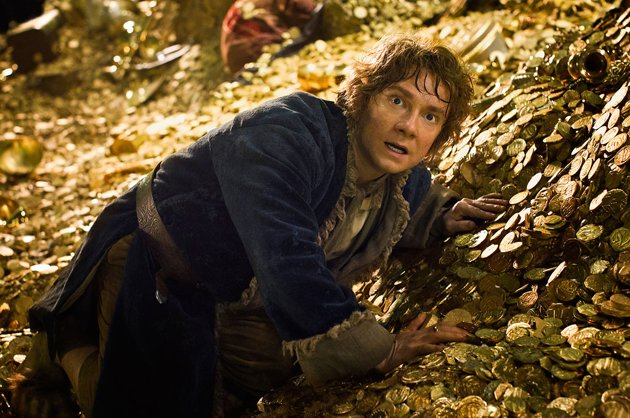
You have nice manners for a thief and a liar…

